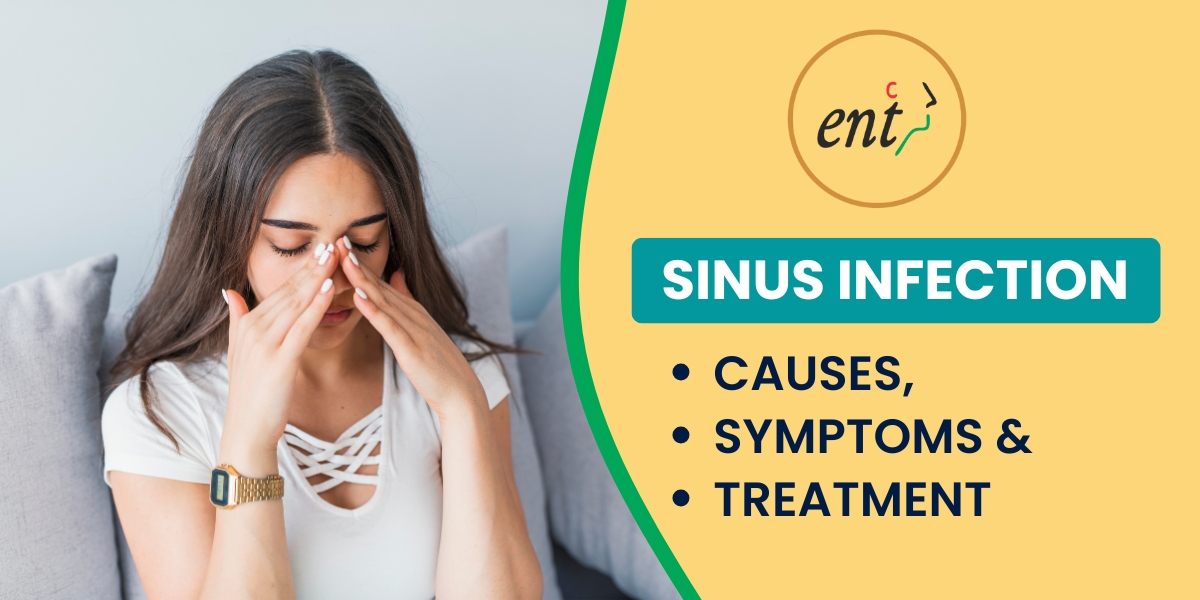Sinus Infections: Causes, Symptoms, and Effective Treatments

Sinus infections, also known as sinusitis, are a common condition affecting millions of people worldwide. They occur when the sinuses—hollow cavities around the nasal passages—become inflamed or infected. While sinus infections can be uncomfortable, understanding their causes, symptoms, and treatments can help you manage them effectively.
What Causes Sinus Infections?
Sinus infections can be triggered by various factors, including:
Viral Infections – Most sinus infections start with a common cold or flu virus.
Bacterial Infections – If a viral infection persists, bacteria can take over, leading to bacterial sinusitis.
Fungal Infections – Rare but possible, especially in people with weakened immune systems.
Allergies – Pollen, dust, or pet dander can cause inflammation, blocking sinus drainage.
Nasal Polyps – Noncancerous growths in the nasal passages can obstruct sinuses.
Deviated Septum – A crooked nasal septum can hinder proper sinus drainage.
Environmental Irritants – Smoke, pollution, and strong chemicals can irritate sinuses.
Common Symptoms of Sinus Infections
The symptoms of sinusitis can vary depending on whether the infection is acute (short-term) or chronic (long-term). Common signs include:







If symptoms last longer than 10 days or worsen after initial improvement, it may indicate a bacterial infection requiring medical attention.
Effective Treatments for Sinus Infections
1. Home Remedies & Self-Care
Steam Inhalation – Helps loosen mucus and relieve congestion.
Saline Nasal Sprays – Keeps nasal passages moist and flushes out irritants.
Hydration – Drinking plenty of fluids thins mucus.
Warm Compress – Reduces facial pain and pressure.
Rest – Supports the immune system in fighting infection.
2. Over-the-Counter (OTC) Medications
Decongestants – Provide short-term relief from nasal congestion.
Pain Relievers – Ibuprofen or acetaminophen can ease headaches and discomfort.
Antihistamines – Useful if allergies contribute to sinusitis.
3. Medical Treatments
Antibiotics – Prescribed for bacterial sinus infections.
Nasal Corticosteroids – Reduce inflammation in chronic cases.
Allergy Shots (Immunotherapy) – Helps if allergies are the root cause.
Surgery (in severe cases) – For chronic sinusitis, nasal polyps, or structural issues.
When to See a Doctor
Consult an ENT specialist if you experience:



Expert Sinus Infection Treatment in Bhosari
If you’re struggling with persistent sinus infections, Dr. Prasad ENT Hospital offers advanced and personalized sinus infection treatment in Bhosari. With state-of-the-art diagnostic tools and expert care, Dr. Prasad and his team provide effective solutions, including:




Don’t let sinus infections disrupt your life—seek professional help today!

Recent Post
-
Chronic Sinusitis: When Is It Time for Functional Endoscopic Sinus Surgery (FESS)?
-
Tonsillitis vs Chronic Throat Infection: Signs, Treatment & Home Care
-
What are the symptoms of throat issues?
-
Seasonal Allergies and Sinus Health: Tips for Relief
-
Common Ear Infections: Symptoms, Causes, and When to See a Doctor
